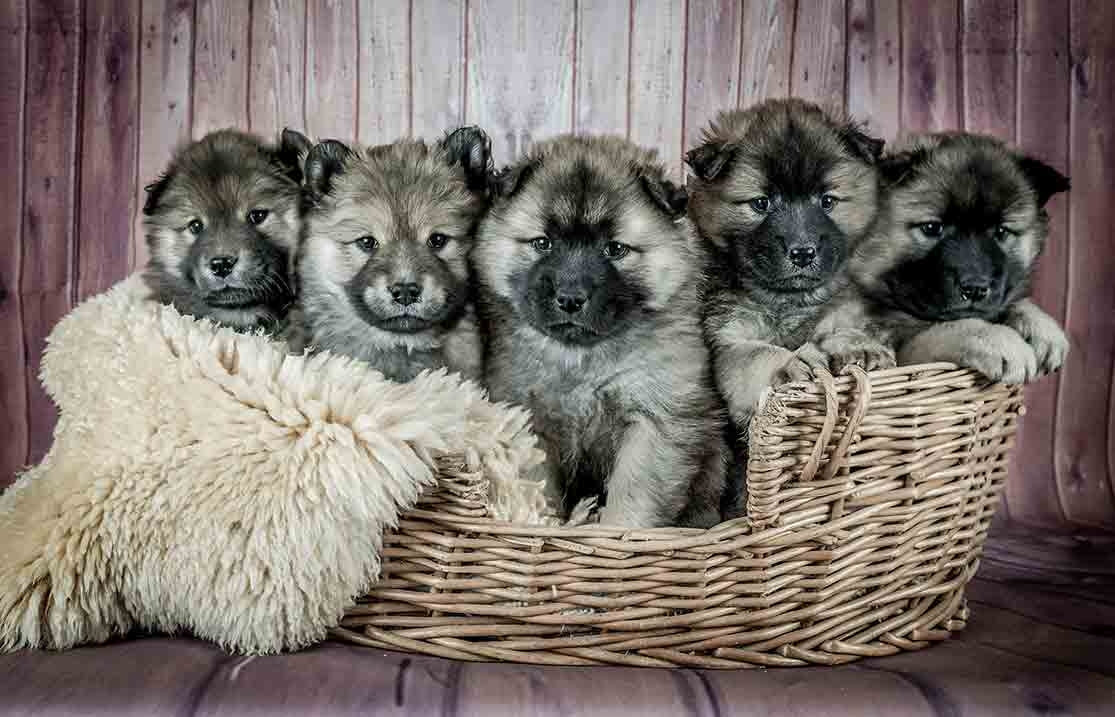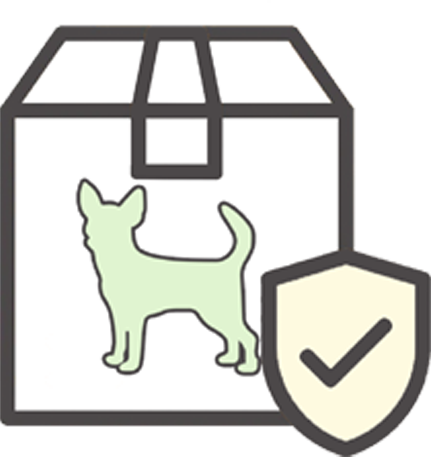How to Keep Newborn Puppies Clean, Healthy and Warm
Friday, May 03, 2019 04:01:20 PM America/Los_Angeles
There is nothing as delightful as having a brand-new litter of newborn puppies running around your yard in the fresh grass. It is like having a bunch of kids playing happily in your compound. However, the prospect of feeding and caring for all these new lives can be a daunting affair. The first few days may seem tough as they may take most of your time, energy and resources. You may need to have prepared earlier for their arrival. The mother also requires more care like the pups as you help her nurse and get stronger to breastfeed the litter. From health to sanitation and potty training, here is a guide to help pet parents take care of their new tenants.
Environment
Newborn puppies are quite vulnerable. Therefore, they need to be kept in a clean conducive environment where they can spend their first few weeks. Choose a warm corner for shelter and position the whelping box there. If you are keeping them outdoors, ensure they're in a warm place away from elements. So, it's quite essential to choose an area for them before their arrival.
Make sure that the space is relatively large enough for the mother and all her puppies to sit, lie or stretch comfortably without displacing the puppies. The room should allow in the fresh air and give easy to access for easy dog potty cleaning and changing the bedding every day. Remember that the little pups may defecate on the bedding or the floor and therefore, constant cleaning will be required to ensure that both mother and puppies stay in a clean environment.
You may need to bring food to the mother where the puppies are as she may not like the idea of leaving the pups alone. Fill her bowl with food as frequently as possible, maybe after every two hours as she will require a bigger helping when breastfeeding than before. If you have a dog bathroom with an indoor dog potty, then you will need to keep that in check to ensure that its empty and clean all the time.
Warmth
Although puppies are fond of snuggling up with their mother and each other for warmth, they may not wholly regulate their body temperatures and in most cases may need extra warmth. A heat lamp can do a better job as its heat is moderate. Make sure to keep the lamp as high as possible to avoid the risk of burning the litter or the mother. There should be a cooler corner where the pups can crawl to when the room is too warm.
Sometimes the room may feel overly hot and stuffy for the furry pals particularly after a week when the pups have grown bigger. You should reduce the pen's room temperature to 85 or 90 degrees and continue reducing the heat until they are out to play.

Nutrition
Just like newborn babies, during their first few weeks, the newborn puppies rely exclusively on their mother's breast milk for all nutritional needs. Despite the mother puppy being less active, most of her energy is used up in breastfeeding, and her daily dietary requirements will be higher than usual. To balance the overall health of the mother and puppies, you should pay much attention to the nutritional needs of the mother. Feed her severally and provide her with plenty of clean water throughout the day.
It is also fundamental to check the weight of all your puppies to ensure that all of them weigh around the same pounds. Pay close attention to them as they breastfeed to know which ones are being underfed. Underfed puppies will appear smaller than the rest and are less active than the others. Puppies who whimper or cry frequently may also be alerting you of hunger and need more attention during feeding.
By the time they're one month old, the little puppies' eyes are open and are energetic enough to move around. Their teeth have also developed and the weaning process can start. Frequently check the mother for any signs of mastitis which could interfere with milk production.
Socialization
At their fourth week, the puppies are old enough to interact with humans and other dogs in the house. At this point, you should already have the compound ready for them with fresh grass to play on as they are still fragile. As they familiarize themselves with the new home, the people and other pets in the home, start potty training. This will not only help you manage with the mess in the house but also help you bond with your new tenants.
You will get to know the type of dogs your puppies will grow to be when you socialize with them, and irrespective of whether you intend to keep all of them or send them to other good homes, playing and cuddling with your pups is a critical developmental stage.

